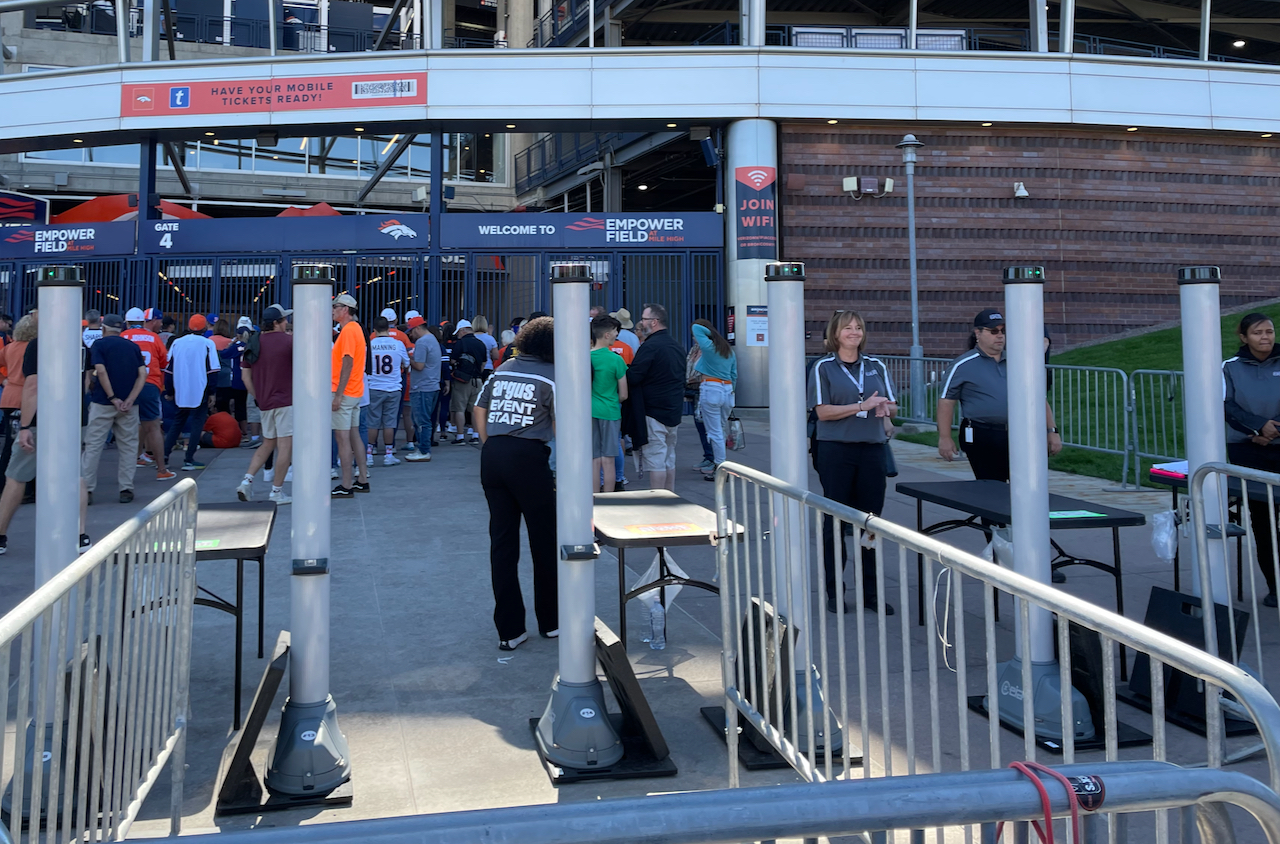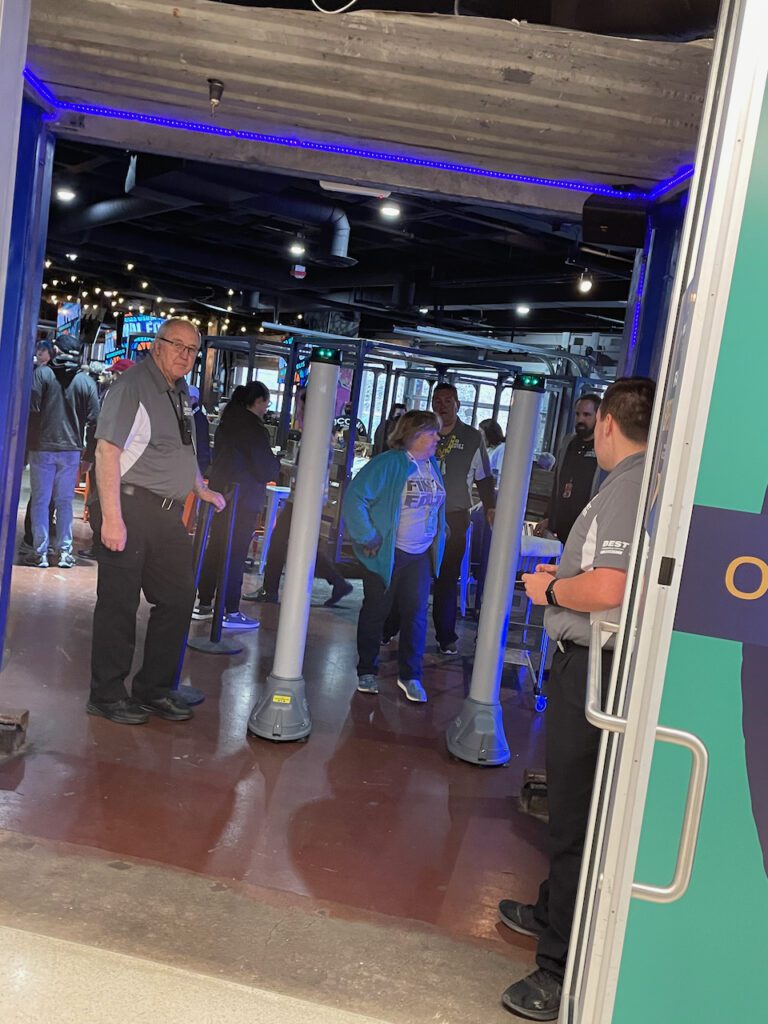
Company: CEIA USA (U.S. subsidiary of Italian parent CEIA, whose initials stand for Costruzioni Elettroniche Industriali Automatism; but everyone calls the company by its acronym, which is pronounced “CHEY-ah”)
Product: Opengate weapons detection system
What it looks like: Two thin towers per gate
How it works: People walk between the two gates one at a time. Positive alerts generate audio and visual (lights) signals from the tops of the towers. Opengate systems are wireless and do not require wired connections between the two gates. They are light and portable, weighing 25 pounds per gate. According to CEIA the towers are hardened for outdoor use as well as in RF interference zones; the company also said that Opengate systems are designed to detect metal threat objects only.
Expertise: CEIA is a 50-year-old worldwide weapons detection behemoth, with systems of all shapes and sizes, including machines that can scan entire shipping containers. Its standard metal detectors are in wide use at many U.S. venues.
Profile: One of the more successful offerings in the new walk-through security scanning market for stadiums comes not from a startup, but from a company with a long history in providing security products, including traditional metal detectors. CEIA USA, a subsidiary of the large privately held Italian parent company, sells a walk-through product called Opengate that has been adopted by many large stadium customers, including the Denver Broncos, the Miami Dolphins and the Kansas City Chiefs from the NFL, and The Ohio State University, Penn State University and the University of Wisconsin for their sports stadiums. Other big-venue customers include Major League Baseball’s Arizona Cardinals and the Washington Nationals.

As best we can tell, CEIA’s Opengate systems do not contain any scanning technology that is different from that found in the company’s standard metal detectors, except for changes needed to support a walk-through experience where things like keys and cell phones can be kept on person and do not trigger alarms. CEIA USA did not make any of its executives available to Stadium Tech Report for live interviews.
According to information sent to us in an email from CEIA USA, one main difference between the Opengate and its traditional metal detector systems is that Opengate “features a near zero rate of nuisance alarms, and operates with very high transit flow, without the need for the divestiture of non-threat items.”

In its email reply, which uses almost exactly the same language as found on the Opengate website product page, CEIA touted Opengate’s light weight and easy setup. While CEIA also said that Opengate is “suitable for indoor and outdoor operations” we have also seen stadiums using Opengate needing to anchor the gates with weights or other stabilizers.
Unlike the Evolv Express or the Garrett metal detectors, the CEIA Opengate is not capable of detecting exactly where a threat might exist on a person’s body. CEIA did say in its email reply that there are no plans to add any other technology, such as cameras or other sensors, to the Opengate systems. CEIA did not provide any kind of a stadium customer count or any total of how many Opengate systems have been sold. CEIA also refused to comment on whether or not the Opengate was approved yet by the NBA for use in its arenas.
While the light weight and portability of the Opengate systems (which can also use battery power to function) might be a selling point, another is the system’s cost, which according to multiple sources is far less up front than the Evolv or Xtract One subscription prices. While CEIA USA declined to comment on pricing, several sources put the cost of each Opengate system (of two gates) in the neighborhood of $20,000.
This post is part of our Market Report on Security Scanners. Click here to return to the start of the report.







